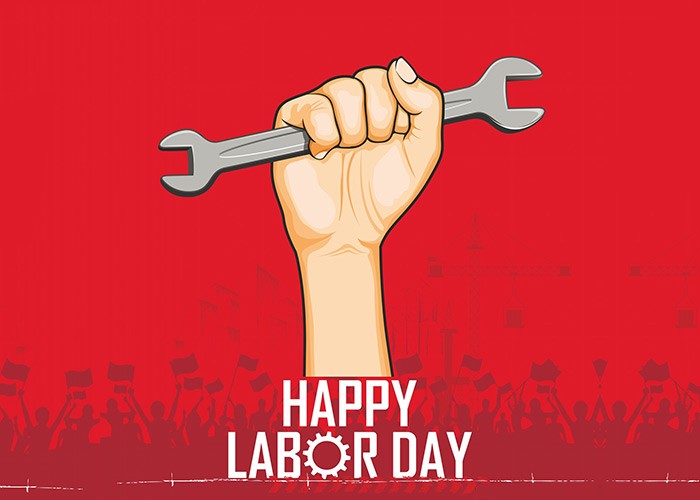Every year, people across the world commemorate Labor Day on May 1, also known as May Day.
每年,世界各地的人们都会在5月1日庆祝劳动节。
So what is the story behind this holiday?
那么这个节日背后有什么故事呢?
In the late 1800s, American workers faced twelve-hour workdays, seven days a week under very difficult conditions.
在19世纪晚期,美国工人阶层面临着每天工作12小时,每周工作7天的非常困难的条件。
Eventually, labor unions had had enough, and on May 1, 1886, hundreds of thousands of people went on strike across the country, calling for eight-hour workdays.
最终,工会忍无可忍,在1886年5月1日,全国数十万人选择罢工,要求每天工作八小时。
Three days later, a bomb went off in Chicago's Haymarket Square, the city at the center of the unrest
三天后,一枚炸弹在芝加哥的干草市场广场爆炸,一时间,这座城市处于了动乱中心,
as tensions escalated between strikers and strike breakers, killing seven police officers and four civilians.
而这是由于罢工者和罢工破坏分子之间的紧张关系升级所致,共导致7名警察、4名平民丧生。

The event only sparked a stronger push for workers' rights.
这一事件随即引发了更强烈的争取工人权利的行动。
But it wasn't until nearly a decade later that President Cleveland signed into law Labor Day as a holiday in 1894.
但直到将近10年后的1894年,克利夫兰总统才将劳动节签署为法定假日。
But in the U.S., the holiday was set for the first Monday in September.
但在美国,这个节日定在9月的第一个星期一。
It was an attempt to distance any association with the Haymarket Riots.
这是试图将之与当年的“干草市场暴乱”事件撇清关系。
May Day eventually became a huge celebration in the former Soviet Union, marked by large military parades.
而在前苏联,劳动节最终成为了一个以大型阅兵为标志的盛大庆祝活动。
May 1 continued to be recognized as Labor Day across the rest of the world as the holiday was eventually embraced internationally.
随着这个节日最终被国际所接受,因此5月1日从此之后就被世界其他地方认定为国际劳动节了。











